Intervju med Luigi Cozzi
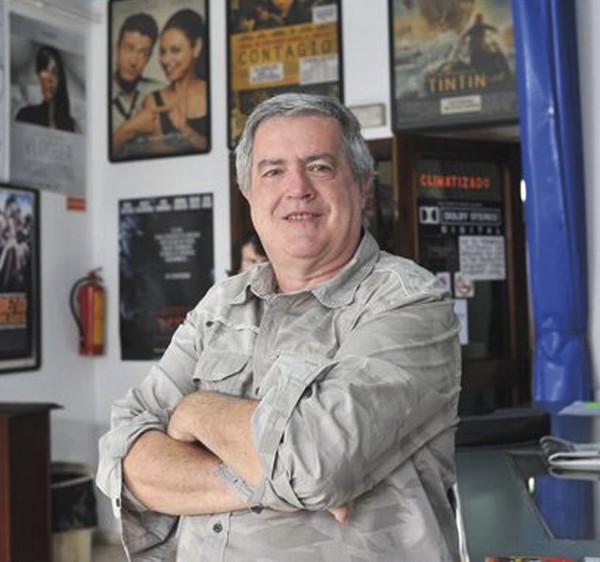
Kult och B-filmsfanatiker som jag är var frågan inte om utan snarare när en temavecka dedikerad till Luigi Cozzi skulle ske. Han står inte bara bakom flera kultastiska italienska produktioner, vilket konsumeras i mängder här hemma, han har ju dessutom gjort några av Cannon Films mest underhållande filmer - och det säger en jävla massa och ges många pluspoäng för hos mig. Att han gick med på den här intervjun som ni nu ska få ta del av gjorde mig så glad att jag kunde plockat upp en björn och slängt den ut i rymden. Ja, det är en referens till en scen från en film både skriven och regisserad av Cozzi. Som sagt, snacka om att vara självskriven en temavecka här på bloggen. Mycket nöje!
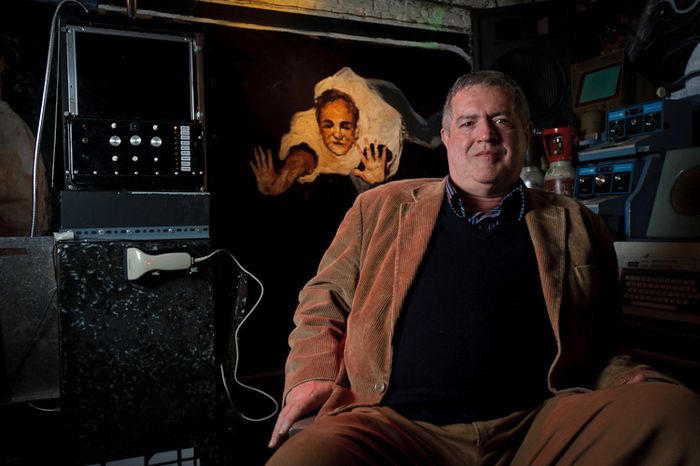
I know you could write a whole book about the subject, but in short, could you share with my readers about your passion for the science fiction and fantasy genres?
Being born in 1947, since I saw 20000 Leagues Under the Sea in 1955 I became an avid sci-fi fan, looking for movies and books. In 1963 I created Futuria Fantasia, the first Italian fanzine, while in 1964 I was hired as assistant editor to monthly sci-fi magazine Galassia. In 1965 I became the Italian correspondent for Forry Ackerman's Famous Monsters of Filmland and in 1968 I directed my first sci-fi movie, The Tunnel Under the World, from the same title story by American writer Frederik Pohl. Just after that I moved from North Italy (Milan) to Rome, where in early 1970 I met with director Dario Argento and we became close friends...
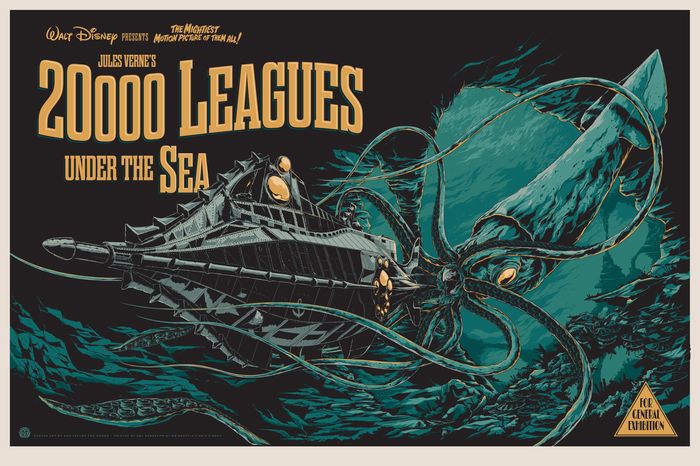
Could you tell us how your movie career got started in Italy?
I started learning about movie making in Milan, working as assistant for dubbing and editing, then I directed and produced all by myself The Tunnel Under the World. When I went to Rome and met Dario Argento, he invited me to co-write with him the script for his third thriller, 4 Flies on Grey Velvet, which was bought by Paramount Pictures, becoming a huge hit in 1971 and fully launching my movie career...
Having formed a professional and friendly relationship with the now legendary filmmaker Dario Argento so early on in your career, was he a big help to you regarding your growth as a filmmaker?
My partnership with Dario Argento was the key to my career: he also wanted me to be his assistant director and he made me direct a tv movie in 1973 which was a huge hit when broadcasted. He also introduced and guaranteed for me to the producers of my own 1974 movie The Killer Must Kill Again... Aside from this, Dario also did really teach me a world of very important things about movie making.
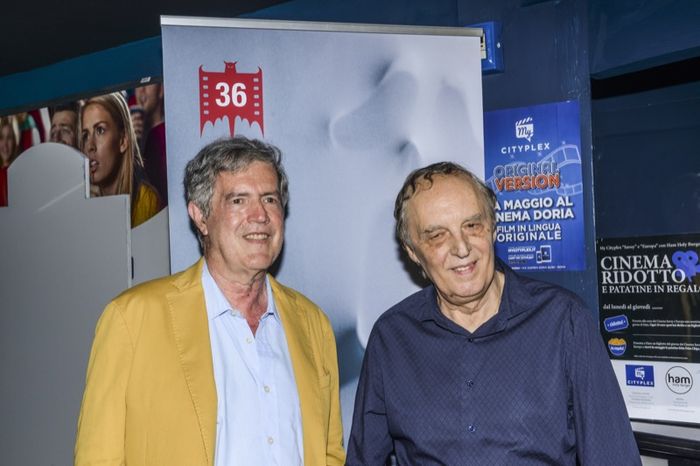
One thing I found interesting it that the interior of Nora and Giorgio's apartment is almost completely in yellow. Was that a reference to the genre in which it belongs, since giallo translated into English means yellow?
When I was shown the yellow apartment as a possible location for Giorgio in The Killer Must Kill Again, I loved it because I thought it was very ironic to have a yellow house in my own giallo movie. This is the reason why I used it: humour... well, there's actually a lot more of black humour in The Killer Must Kill Again. To be true, in all of my movies there's always a lot of tongue-in-cheek.
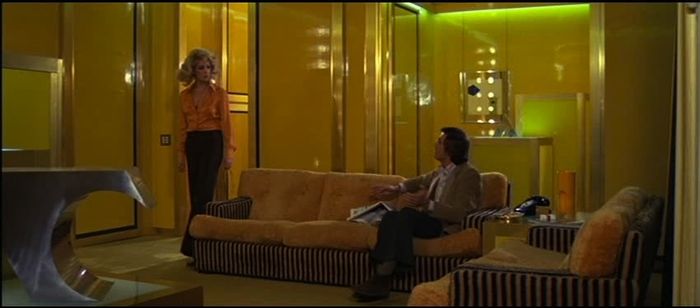
While Argento and giallo goes hand in hand, you yourself are an expert on the genre, having held a master class on it. Despite this, The Killer Must Kill Again was the only one you directed in the genre. Was it a conscious decision to move more towards your great love for sci-fi and fantasy in your filmmaking or were there other factors involved behind not making any more gialli?
Since I was a kid my dream has always been to become a science fiction/fantasy filmmaker, but it was very, very, very difficult to do this because in Italy just less that 5 or 7 movies of this genre had been made all through the years, sci-fi being considered by Italian producers and distributors as a not commercial all-American genre. Anyway after The Killer Must Kill Again I again tried to convince someone to let me do a science fiction movie, ending up doing a comedy movie instead for a producer who had promised me to let me direct later on a movie version of Fred Brown's novel The Mind Thing... which finally wasn't made.
Let's talk about Cozzilla, a very odd part in your filmography. Where did you get the idea from to not only bring Godzilla back to theaters in Italy, but to also colorize, add new music and footage to it?
In January 1977 I bought the first Godzilla from Toho, because I was running a smalll sci-fi theatrical releasing company here in Italy, handling theatrical re-release rights to such pictures as Invaders from Mars, The Thing, Son of Kong, The Cat People, Invasion of the Body Snatchers, Things to Come, Kronos: Conqueror of the Universe, The Creeping Unknown, Enemy from Space and many others. Then, when Dino De Laurentiis announced his remake of King Kong, I thought to re-release in theaters the original Godzilla, doing it in a kind of new way: colorizing it and adding Sensurround effects plus magnetic 4-tracks stereophonic sound, in order to book it in big theaters. I also re-edited it, adding about fitfteen minutes of new stock footage and some additional music too. And in mid-summer 1977 my Godzilla was released theatrically by my small company in Italy, earning some decent bucks.
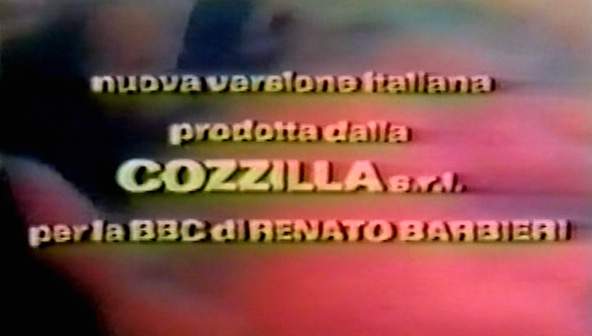
Could you tell us how you managed to give Cozzilla that special look through the colorization?
The idea of colorizing Godzilla came to me after I'd met a guy, Armando Valcauda, who had the same kind of technical machinery that Ray Harryhausen had and used for his stop motion movies: the Kras. I immediately thought that Valcauda could be the key man for my plan to shoot a sci-fi movie and so I decided to test him, paying him to shoot a sci-fi effects test reel. He did it (actually we worked together on it) and while working with his stop motion system I discovered that it was easy to add or change colours to every frame. This clicked in my mind the idea of using this stop motion system to give colours to the original black and white Godzilla. We made a test and afterwards I saw the result I decided to go along with it... and we did colorized via stop frame animation the whole Honda movie... which has been the FIRST colorized movie ever, many years before computer colorizing. Crazy idea but it worked. We took about two months to colorize the whole movie.

Toho are pretty known to be a hard company to deal with, how were they when dealing with your Cozzilla and did they have any objections to the changes you were making?
I informed Toho about my changing their Godzilla and adding colours to it. They fully authorized me to go ahead, with just one condition: after my seven years contract with them'd be expired, all the colorized negatives'd become their own property. And after seven years I delivered to them all these new negs.
How did the audience and critics react when it premiered in Italy? Was it a financial success?
Critics didn'r review my Godzilla, because they didn't care about re-releases. The audience reacted well: it stayed for two weeks in major theater in Rome and Milano, earning all expenses back plus some fair gain.
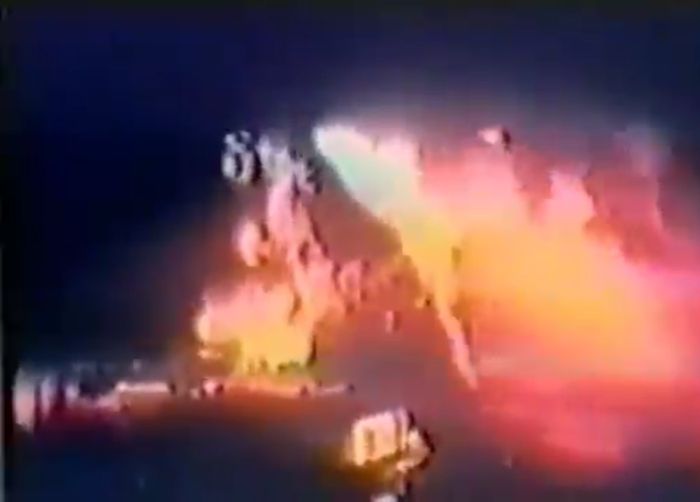
In 1978, you made what I'd call your most ambitious movie, Starcrash, which I've always viewed as a love letter to the sci-fi and fantasy genres. Was it a dream come true to finally make a movie with so many things you'd grown up appreciating, like model ships, stop-motion effects, robots and getting to add references to some of your heroes?
The Starcrash project was born in May 1977, just after Star Wars opened, and I started shooting it in mid September 1977, ending main shooting with actors just before Christmas 1977. Then we worked on the editing and doing the special effects till September 1978. In Italy it was released early in January 1979. Of course Starcrash was the fulfillment of my life-long dream of making an all sci-fi movie. Actually, Starcrash was more a science fantasy than actual sci-fi, because I decided for practical reasons (not enough time to prepare it, not enough money to do it properly) to do it more as a Ray Harryhausen-like movie than a George Lucas-oriented vehicle. Yes, Starcrash was done in this way because I knew we had to do most of our special visual effects with the stop motion technique using the Kras stop motion camera-projector...and so I had written the movie in order to stick perfectly to this. Adding to the whole my full thirty years of deep love for sci-fi movies and books. (I was just thirty years old when I made Starcrash)
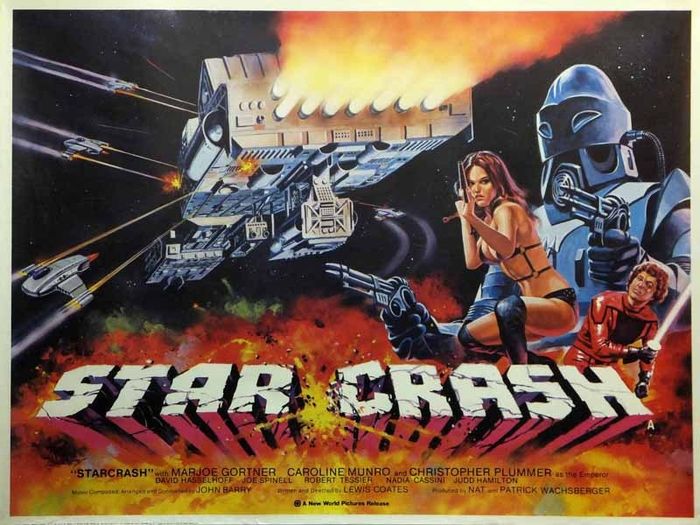
Did Roger Corman have any part in the making of it besides his company New World Pictures being the distributor? I ask because in the US it's released under Shout! Factory's Roger Corman's Cult Classics collection, but I can't find any information about any direct involvement on his part.
Starcrash was born and made as an AIP (American International Pictures) movie and its CEO Sam Arkoff came personally to visit us during shooting here in Rome. I met him and he congratulated me over the dailies he had been shown. Then Starcrash was due to be released by AIP at Easter 1978, but lost that date because its special effects were still being completed. So its AIP US release date was moved to late August 1978 and the picture actually could have been delivered on time, but in the meanwhile seemingly Roger Corman had met the Starcrash producer making a bigger offer... so, don't ask me why and how because these things were happening in L. A. while I was working here in Rome, all of a sudden Starcrash had a new distributor, Corman's New World. But I never met Roger Corman or heard from him while working on Starcrash. I was only informed some months after the US release of the movie that about 8 minutes of my own version of Starcrash had been cut from the American prints, probably due to a Roger Corman decision.
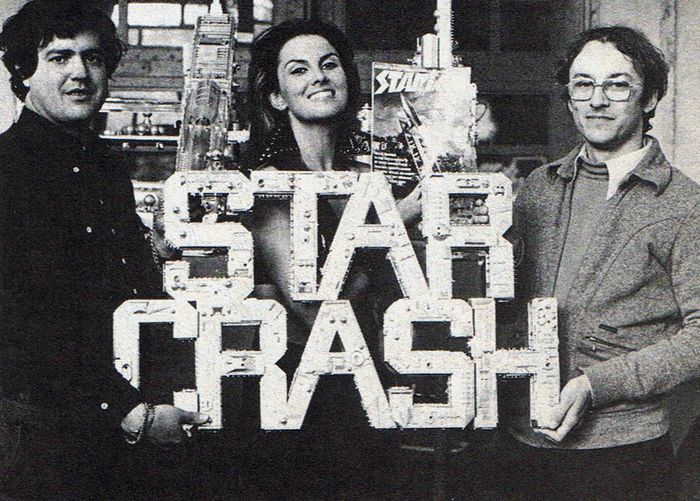
A very young David Hasselhoff has an important role in the movie. What was he like to work with?
I had selected David Hasselhoff watching VHS recordings of him acting in some tv soap operas. I thought he was perfect for the role of the Young Prince and so told the producer to hire him. When he came here and I knew him, I found he was a very intelligent and collaborative guy, working very easily with him. And he was a good actor too.
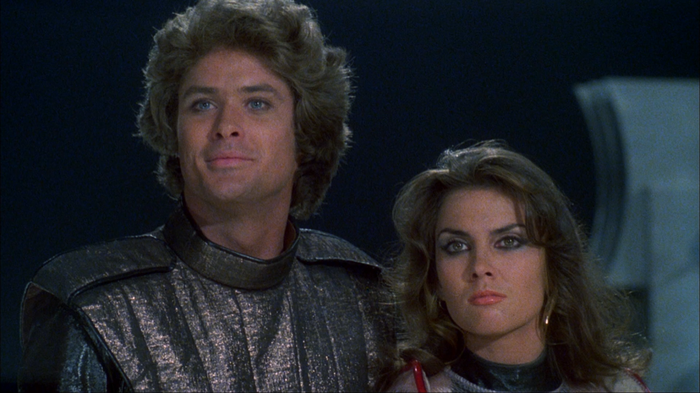
My favorite character by far is Elle, the robot. I love the fact that he has a thick Texan accent. Whose decision was it to make him speak like that?
The robot Elle ("L" being the initial of my name) was supposed by me from the very start to speak with a peculiar and funny accent. Not being able to speak fluent English, I had no idea of which kind of American accent this robot could have, but positively I wanted it to speak English in a funny way. According to this, the decision to give him a Texas accent was later taken during the dubbing in LA.
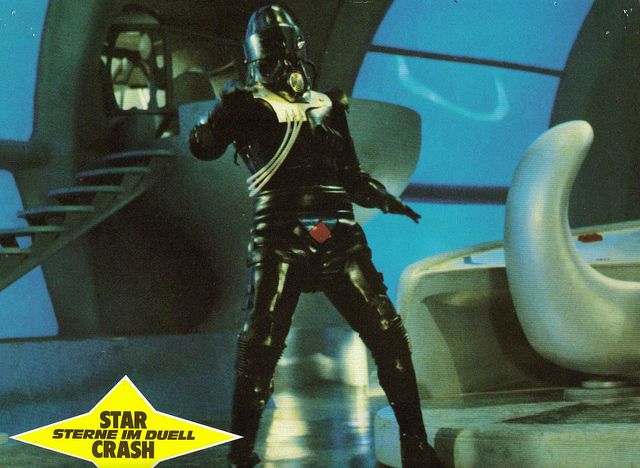
Two years later, you made another sci-fi with Contamination, often being labeled as an Alien rip-off, which I think is unfair. With the elements of Mars, mind control and the creature (which reminds me of the one in It Came From Outer Space), my mind turns more towards sci-fi movies from the 50's. So, what were your inspirations behind the idea of the movie Contamination?
Contamination was made because I promised to its producer to deliver an Alien-like imitation within a minimum budget. Because of this I was obliged to put in it alien eggs and bloody body explosions. But aside from these fixed points I could not avoid to use, I actually made a Fifties oriented sci-fi movie, with strong inspirations and the same kind of mood from these three classics: Them!, The H-Man and Enemy from Space.
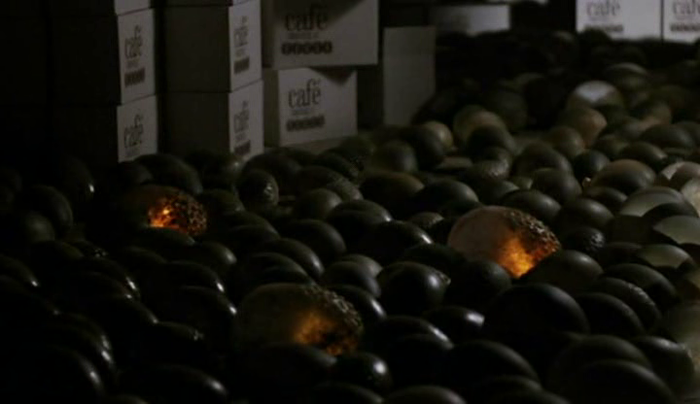
You chose the Italian progressive rock band Goblin to make the score, the only time they've ever scored a movie you've directed. What made you choose them for this particular movie?
Music has always been a very important element for me in the movies... don't forget I was (and still am) a long-playing collector and a former journalist for a weekly pop/rock magazine. So in 1980 I choose Goblin's progressive rock because I though it could fit well with the action in the scenes of my Contamination, as it actually did.
You then worked for Menahem Golan and Yoram Globus' Cannon Films on both Hercules movies and Sinbad of the Seven Seas with Lou Ferrigno. What's the story behind how you got to work for them?
When Starcrash was released in the US becoming a hit, Golan and Globus approached and signed me to do one more sci-fi movie for them. The project was titled Star Riders but after a while they decided not to do it (making Golan's sci-fi The Apple instead... and it was a total box office disaster). Still I had a contract with them and they were due to pay me for it, so they assigned me to work on Space Vampires... but after a while this project was shelved too. In the meanwhile they had opened Cannon in Italy too and were producing two Lou Ferrigno's vehicles, The Seven Magnificent Gladiators and Hercules.
But when, on the eve of starting shooting Hercules, Golan was finally given the script for it, he hated it. So they were in a tragic situation: Ferrigno was here in Rome ready to start, but they had no script at all. Immediately Golan thought of my standing contract with them and phoned me, offering me to direct Hercules if I were to be able to deliver to them a decent new script for it within the next ten days. I did... and they liked very much my own concept of Hercules as a Superman of the past, and so I became this science fantasy version of Hercules new director.
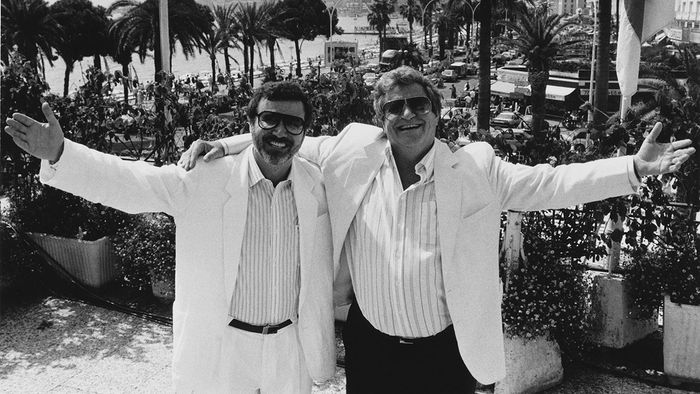
Ferrigno's voice is dubbed in all three movies. Obviously, Italian produced movies uses dubbing, but sometimes the actors lend their own voices in post production. Was there a specific reason why Lou Ferrigno didn't dub his own voice?
As I've already told talking about Starcrash, I can understand English but have difficulty to understand slangs, accents and so on. Therefore I've never dealt directly or personally with the English dubbing of my movies. With Hercules I was told since the beginning by Golan that Ferrigno, having been deaf as a child, couldn't speak clear, fluent American language and for this reason he was going to be dubbed. I simply accepted this, not being able to judge Lou's accent by myself.
In Electric Boogaloo: The Wild, Untold Story of Cannon Films, you mention that the script for Hercules was originally very different and adult oriented and was changed due to Ferrigno wanting a more family-friendly movie. Do you think the movie suffered as a result, or did it get better with the different tone?
The first script of Hercules was simply changed because Golan hated it: he didn't let me read it but just told me it was totally old-fashioned with even some hard-core sex situations, while Golan absolutely wanted the Hercules movie to go for the children and the family audience. Therefore Golan told me to write a completely new script from the scratch. Then I proposed him my own personal view of Hercules as a Superman of the past: he immediately liked it and told me to write the script accordingly... which I did. And when I delivered the script, Golan and Globus liked it so much that they even rose the budget for the movie, bringing it close to 2 billion Italian liras (about one million and a half dollars).
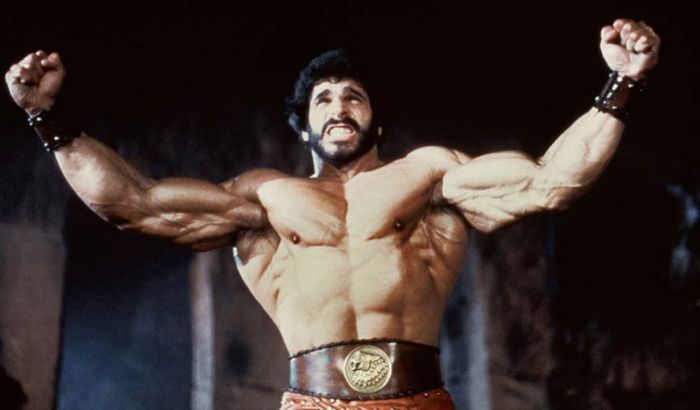
So, the making of The Adventures of Hercules II is a bit odd. Could you explain how the idea of the sequel came to be?
There was no sequel planned for Hercules. After that I just had been signed to write and direct Lou Ferrigno in Sinbad and we were going to start pre-production on it. But suddenly things changed: Golan and Globus came to Rome, saw Hercules completed and were very happy with it. At the same time they were shown the former Lou Ferrigno vehicle shot in Italy before I stepped in, titled The Magnificent Seven Gladiators, and they were literally shocked by it: they decided not to deliver it to their international distributors who had already paid for it because it was their lousiest movie ever. After ten other days, having thought about how to solve this unexpected trouble, they made me an offer... a kind of offer that actually I could not refuse: they had decided not to start immediately to work on Sinbad because they did want me and Lou Ferrigno to work on reshooting at least 40 minutes of new scenes to be inserted in The Magnificent Seven Gladiators, trying to bring that mass of crap almost to decency.
This meant for me cutting out 40 minutes of the already completed Seven Gladiators and scripting 40 minutes of new scenes to be shooted and inserted into it. Which I did. When the script for these new Gladiators 40 minutes was sent to Golan along with a two-weeks new shooting schedule for approval, he okayed everything but added a question: if Luigi is able to direct 40 new minutes in two weeks, would he be able to shoot 80 minutes if we pay for a FOUR weeks new shooting schedule? Puzzled, I said I thought it was possible... and then Golan said: Then go with it! Write another 40 minutes brand new section of the script and forget about shooting retakes for Seven Gladiators. You'll shoot instead a totally new Hercules movie.
So I had to do this... and it was a very complicated script... because I could not write it simply for the start to the end as when I scripted Hercules 1, but I had to write new scenes to fit into other scenes which I had written as going to be a part of Seven Gladiators... well, a real mess and a very complicated work, having terrible trouble trying to give a coherent sense to the whole. A really jigsaw script... surely not the best way to write a good script. Besides that, the budget which had been made for 40 minutes of Gladiators re-takes was simply doubled, but it was absolutely not enough for a wholly full-lenght new Hercules movie... but Cannon didn't change it and therefore I was forced to do this very unusual kind of Hercules sequel spending much less than half of the budget I had for the first Hercules...
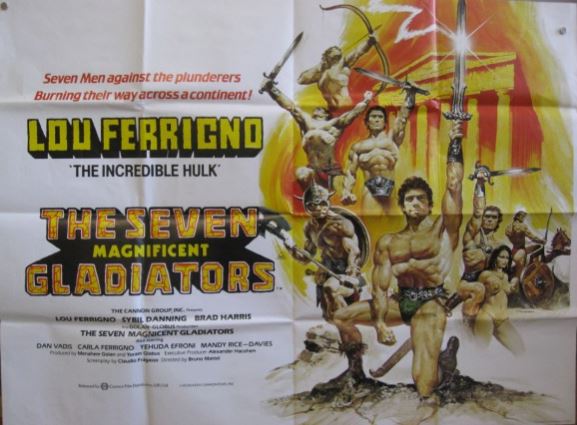
Ferrigno shot Adventures of Hercules with a re-shooting low cost contract as he were doing retakes for The Magnificent Seven Gladiators. Then when the movies was actually finished, back in the US he was informed that he actually had shot a kind of new sequel to Hercules and was given a new contract for it, but at a much lower fee than the one he had got for the first Hercules.
Let's move on to Sinbad of the Seven Seas, which you wrote the screenplay for and was supposed to direct in 1986. However, you were replaced by fellow Italian director Enzo G. Castellari. What was the reason for your replacement?
I wrote the script for Sinbad and it was approved. The movie was due to start in early 1984 but suddenly Cannon rushed into production Assisi Underground, a big budget movie about Jews troubles during wartime, because they were given a lot of money from Israel people to do it. So Sinbad was delayed. Then I went to work doing insects and special effects for Dario Argento's Phenomena (Creepers). In late 1985 Cannon Italy bought many theaters in Italy acquiring them along with Fulvio Lucisano's Italian International, who started to take care also of their movie production here.
The result was their decision to do my Sinbad script as a tv movie, so they ordered my script to be enlarged and turned into five one hour lenght episodes. They hired tv writers to enlengthen my script and decided to hire as a director Enzo Castellari, who had a longer tv experience than me. Then they proceeded to do this very long movie. The final result was that my script, perfect for a normal lenght movie, had became too long and even boring, Castellari having also decided to take away from it all of its many special visual effects (my script was totally filled with them) substituting them with classical fight scenes with stuntmen.
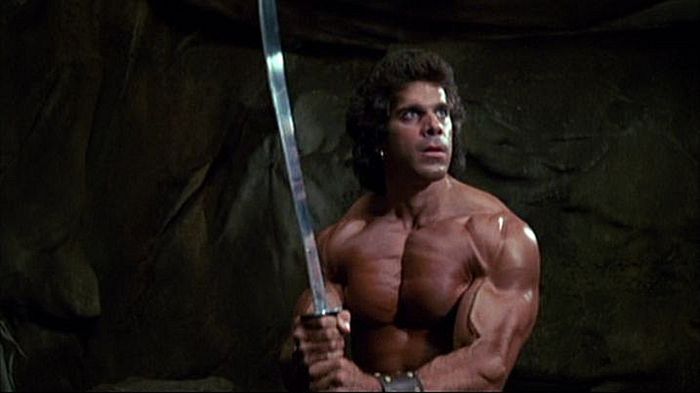
According to Cannon Films, what Castellari brought back was unreleasable, so they shelved it for a few years before hiring you to fix it. What problems were they so concerned with that made them deem it unreleasable?
In mid 1988 I was contacted by Cannon and was asked to come and watch the five hours length version of Sinbad they had made and shelved, asking me if I could turn it into a 90 minutes long movie. I saw it and thought this five hours version was incredibly slow-paced and old-fashioned: it was somewhat like a kids' Russian Sinbad movie from the early Forties. But still the main plot came from my script: so I said I accepted their proposal and was given total control. I cut endless talkie scenes, endless stuntmen garbage, shooted a few connecting scenes and added a real lot of special visual effects. My final 90 minutes version was approved by Cannon and Sinbad was finally released in this new form "doctored" by me. Obviously it was not up to the original quality of the script I had written, but at least somewhat it still reminded it.
What changes did you end up making? Roughly how much was cut and how much was filmed to make it releasable?
From the five hours Sinbad they had edited, I took away about four hours. I edited differently and added effects to at least twenty minutes more from the original and shot about ten new minutes (mostly the "frame" sequence with Daria Nicolodi and my daughter Giada).
From the five hours Sinbad they had edited, I took away about four hours. I edited differently and added effects to at least twenty minutes more from the original and shot about ten new minutes (mostly the "frame" sequence with Daria Nicolodi and my daughter Giada).
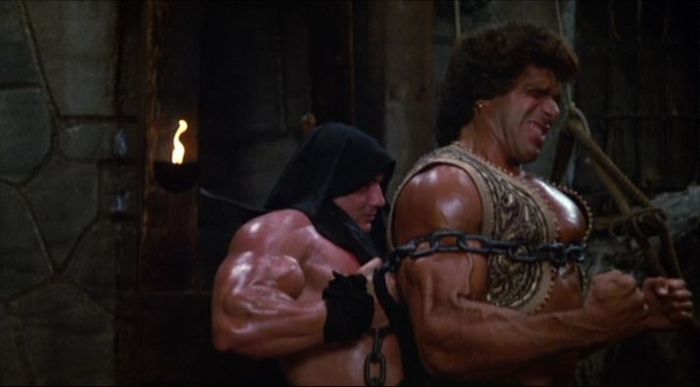
Vampire in Venice is another troubled movie you worked on, which went through several different directors. Could you tell us the story behind your departure on the project?
I did not depart from Vampire in Venice, I stuck with it from the beginning till the very end of its shooting schedule and even during the two years they later spent in the editing room trying desperately to give a meaning to its senseless plot. Regardless of this fact, I have often been credited in the web as co-directing this movie, which is absolutely false. I was initially hired on Vampire in Venice as being its special visual effects supervisor, which I was. So I directed the scenes containing special effects: the friars falling from above, the girl jumping down from the bell tower, the moments when Plummer shoots his rifle creating a hole in Nosferatu's stomach and other similar shots. Furthermore, midway through the shooting schedule of this movie I was also asked to do some second unit directing, so I directed several shots of Kinski walking alone at dawn or attacking a lonely girl. Nothing else I did.
The infamous actor Klaus Kinski had the lead role, I bet he was a handful. What was your experience working with him?
I'm very determined but also extremely kind and patient. So I succeeded into having a good relationship with Klaus, he never went crazy with me, while he was crazy most of the time with almost all of the other actors and members of the crew.
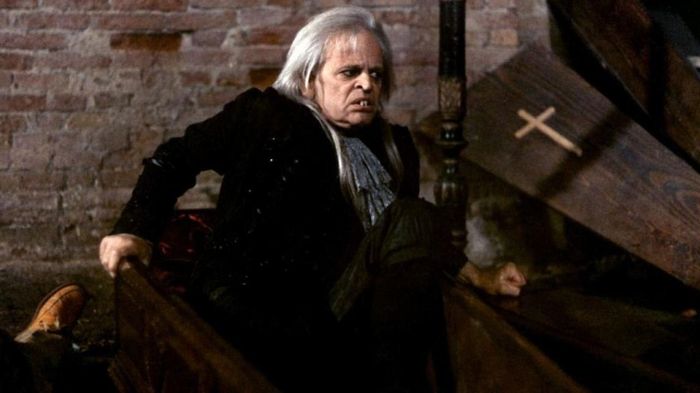
You rounded up your directing career in 1989 (not counting the Argento documentaries) with Paganini Horror and The Black Cat. What was it that made you decide to stop directing for so long? You were still quite young, after all.
I made Paganini Horror in 1988 and The Black Cat in 1989. After that I realized that independent filmmaking was ending both in Italy and in the US. So I looked around to find something else to sustain me and decided to join my friend Dario Argento's company. I did for him as a special effects supervisor and second unit director Two Evil Eyes (shot in Pittsburgh) and The Stendhal Syndrome. In the meanwhile I also joined Dario running his own horror store, "Profondo Rosso", which he had opened in 1989. Since this store was a big commercial hit, I stood with it and I am still running it today, almost 30 years later. In the meanwhile our horror store has grown also into a book publishing house (I have edited so far more than 110 books about genre movies) and last year it has also produced a new movie directed by me, Blood on Méliés' Moon, which we just released here in Italy on DVD.
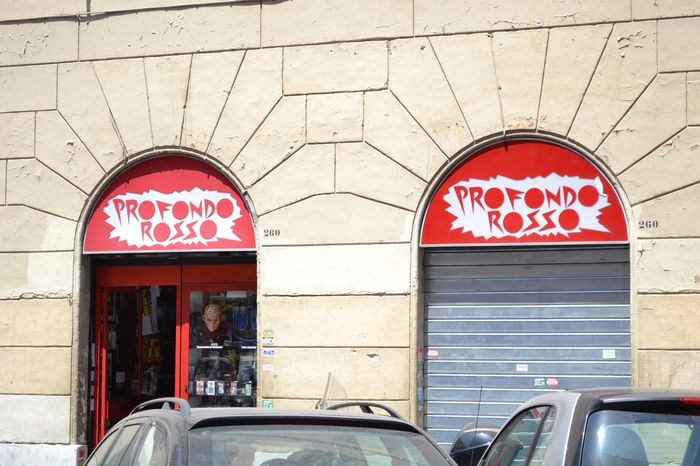
Photo taken by me. Yupp, I've been there.
There is also a museum dedicated to Argento in the basement of the store, helping it become sort of a Mekka for fans of Italian genre films. Was that the idea behind the store all along?
Yes, our main idea was to create a meeting point for fans from all over the world. When we opened "Profondo Rosso", our fear was that people could not be interested into that. Instead, since its very opening, crowds of people came, as they had been expecting it to happen since a long time: it was wonderfull! A daydream come true! Now, nearly thirty years later, I can proudly say we really succeeded into doing that!
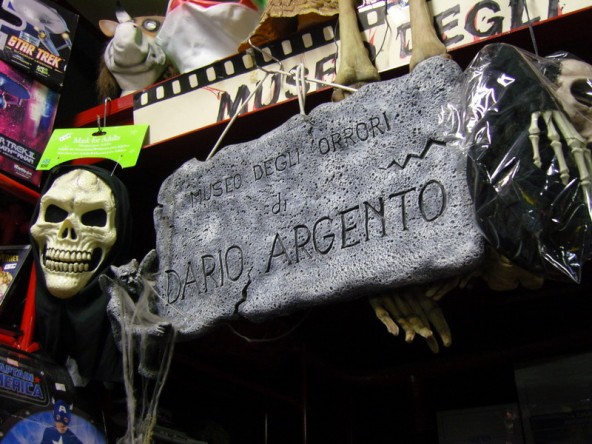
To say that you have garnered a cult fanbase since your retirement would be an understatement. In fact, there's a new documentary about you making the rounds on film festivals called FantastiCozzi. What's the story behind the making of it?
About six or seven years ago I was invited to Brazil, where during a horror/sci fi festival named Fantaspoa and held in Porto Alegre they showed all of my movies. During these days a festival man, a very nice guy named Felipe Guerra, taped for hours an interview with me about my life and career. Then he started editing it and finally, during another Fantaspoa in 2016, he showed the final result, a documentary about me titled FantastiCozzi. I was invited to its premiere and was very happy of the result: it's a really good documentary, which since then has been shown in many other festivals all over the world. I also plan to include it as a bonus on the blu-ray edition of my new movie, Blood on Melies' Moon, that we're currently preparing for 2018.
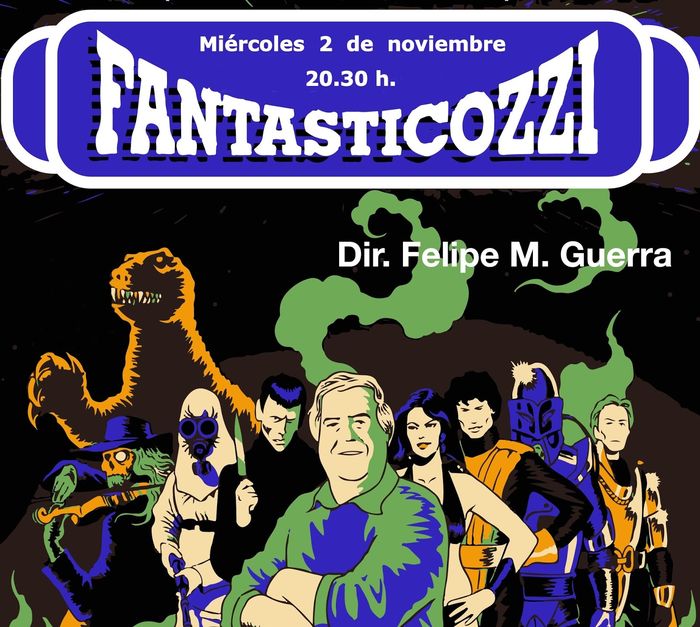
Last year you came out of retirement to direct again for the first time in over 25 years and made Blood on Méliés' Moon. What prompted you to get back to directing again?
I started shooting Blood on Melies' Moon in late 2014 and went on till mid-2016, when it was finally completed and released. It had started very casually, just as a game, because some French fans had just asked me to play a role in their new short. After a while the project was abandoned by them, but I liked the idea, so I resurrected it and went ahead all by myself, with some help by many friends.
Was it a learning experience, since a lot has changed in moviemaking over the past 25 years?
I worked with young guys and with a totally unexperienced crew. So in the end they said they had learnt a lot from me! Actually I did use all of my past experience to teach and guide them. Practically I had to supervise everything, from executive producer to d.p., from the sets to the production schedule, from make-up to costumes... but it has been fun and I liked it. And around me I felt a lot of enthusiasm...
Technically, I felt ok with the new cameras and the computers, today shooting is much faster than it was before and even easier. But remember that I've always been a video fan: in 1983 I shot many FX for my Adventures of Hercules movie with one inch tape and then converted the results to 35mm. At the time they said I was crazy, but time has shown that I was right instead! That was the future!
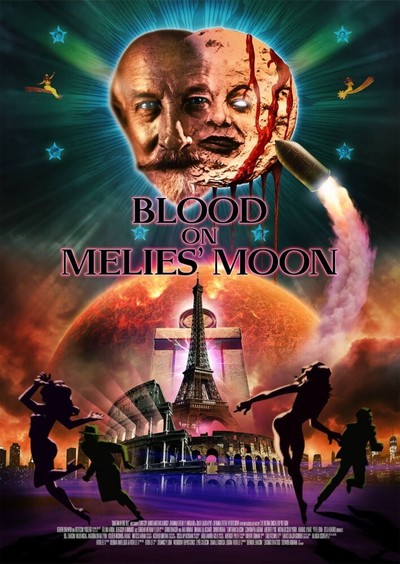
I bet a man with your imagination and being a writer/filmmaker, you have several unfilmed scripts laying around somewhere. Is my assumption correct?
Yeah, I've written many scripts which went unproduced, like my Black Pirate, a science fantasy about a black corsair fighting monsters and dragons during pirate times. It was a very similar concept to Pirates of the Caribbean, only written too much in advance, in 1982. I've turned most of my unfilmed scripts into novel form and published them on Italian pulp magazines. Another good one is Star Riders, which American writer A. E. Van Vogt turned into novel form during the Eighties.
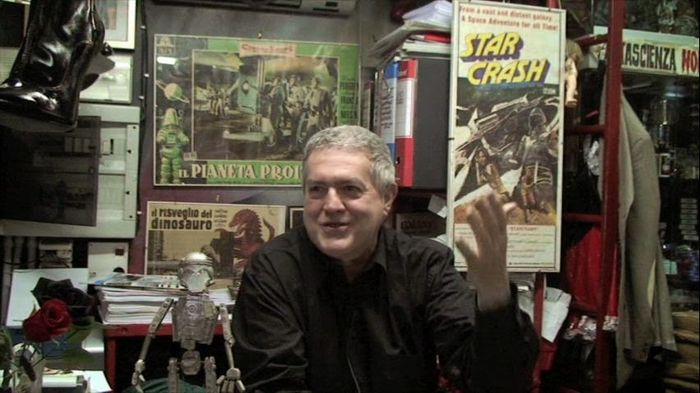
What do you think it is that makes a movie transition to a cult movie and why do you think several of yours has reached that status?
I think most of my movies have become cult because they do attract and interest many people being very different and unusual, also displaying a true love for their genre. They also have a soul, they have a heart, they have feelings and give emotions, things which are not so common to be found in movies. Besides, they even have black humour and tongue-in-cheek twists...
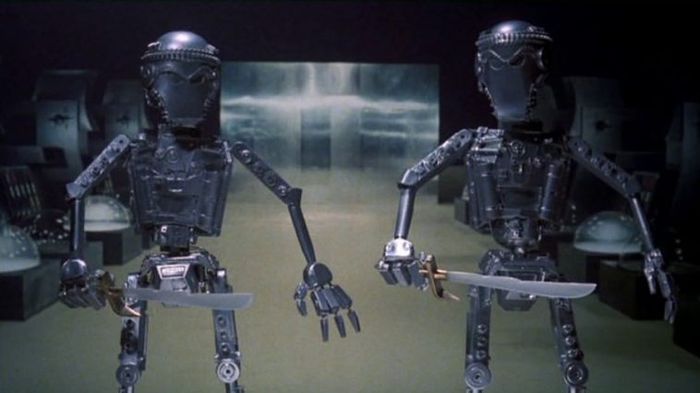
Out of all the movies you've made, which ones are you the most proud of, and why?
Most of my movies are different one from the other, though being very personal. I've made a love story which became a big hit (Dedicated to a Star, also known as The Last Concert or Take All of Me), which showcases my directorial qualities at their best, having worked with just two characters since the beginning to the end. I've also made Starcrash, which is a really good fairy tale for children and adults alike, or Hercules, a new way of doing a sword-and-sandals movie which patterned the way to many imitations, or The Killer Must Kill Again, which is the exact opposite of every normal Italian giallo movie, or The Black Cat... The Tunnel Under the World... the new Blood on Melies' Moon, which is the first movie made by me which has got many good reviews and plauses, surprising me, because surely it's my wildest and most personal movie so far.
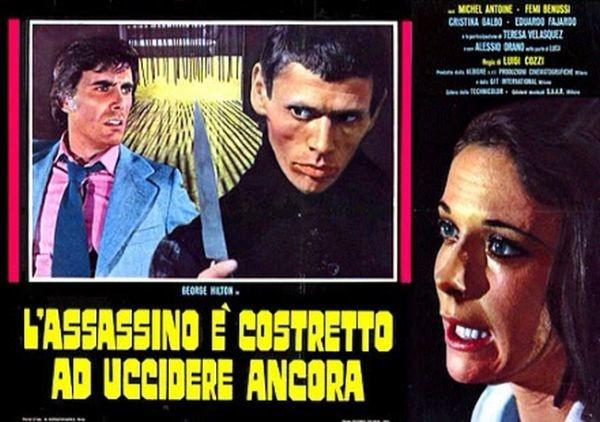
I love cinema, I've lived for cinema, I adore and study it, its history and its possible new forms in the future. And I've even succeeded into making a way of living of my passion for movies, which it is not easy... and actually it's not been easy for me. But cinema is my life...
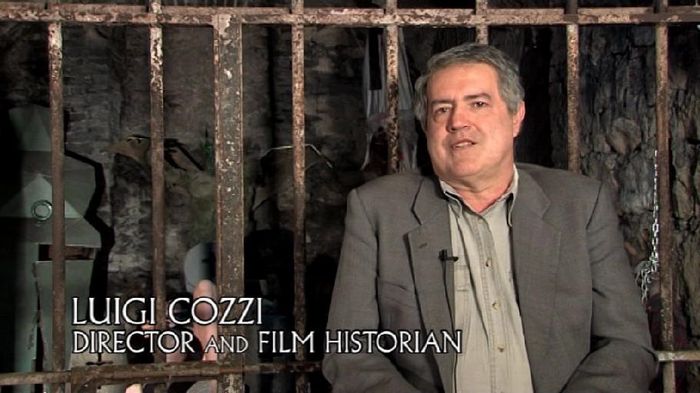
Do you have any advice for filmmakers out there who are trying to make their big break, or just getting a movie done?
Today it is technically much easier to do a movie: you can even do it with your mobile. But cinema is much more than that: a movie can be technically perfect, but still being a lousy and useless one. Movies to be good need a story, need to give EMOTIONS to their audience. If a movie is technically so and so, but it has a good story, then people'll like it anyhow. So, when you do a new movie, first of all you need to have a strong story to tell, a story with an idea... otherwise it'll be all a waste of time. Don't start to do a new movie until you've a very good script for it! The script (the story, the idea...) is the key!
Finally, how would you like to be remembered as a director and writer?
I am a writer and I am also a director. While I can't live without writing... while I can't live even without watching and studying movies... well, I can live if I'm not directing. But obviously I feel better when I'm also directing and creating...
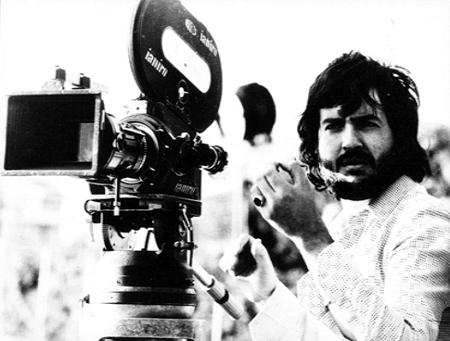
Ett jättestort tack till Luigi Cozzi för intervjun! Ni kan beställa filmer, böcker och lite allt möjligt från butiken Profondo Rosso via hemsidan, men ska ni till Rom någon gång MÅSTE ni verkligen göra ett besök till butiken, som ni hittar här.
Intressant! Jag skrev säkert det här vid din förra intervju men det är svårt att veta vad som är mest fascinerande -- alla dina frågor eller att dina informanter är så utförliga i sina svar på dem :)